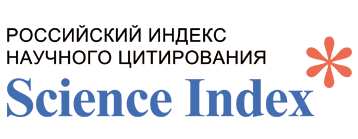TEACHING AND LEARNING ENGLISH THROUGH MOBILE APPLICATIONS
Аннотация
The article presents a research study conducted to examine the effectiveness of mobile devices in teaching and learning English from the perspective of university students. The research aimed to investigate the interest of students in using mobile apps for learning English, explore the potential of educational applications downloaded on students' mobile phones, and assess the integration of mobile devices into classroom activities at university for English language learning. The study collected responses from students studying at the university located in Atyrau through an online questionnaire created using Google Forms. The responses were analyzed by the authors, and follow-up interviews were conducted with a subset of students to link the reported mobile device use to its actual use for language learning. The article proposes that the use of mobile devices as an educational tool in the process of university study has the potential to expand perceptions of tutorial experience in teaching and learning English. In general, the use of mobile devices as an educational tool in university education has become increasingly common in recent years. Mobile devices such as smartphones and tablets offer students and educators the flexibility to access course materials, participate in collaborative activities, and communicate with each other anytime, anywhere. It is important to ensure that mobile devices are integrated into the curriculum thoughtfully and intentionally, taking into account the specific needs and goals of the students and the course.
Ключевые слова:
information technologies, software, and hardware, application of the Microsoft Office software package, sociological research, the effectiveness of sociological researchБиблиографические ссылки
Berns, M. (1995). English in the European Union. English Today, 43, 11(3), 3-11. Council of Europe (2001). Common European Framework of Reference for Languages: Learning, Teaching,Assessment. Cambridge: Cambridge University Press.
Dooly, M. (2018). “I do which the question”: Students’ innovative use of technology resources in the languageclassroom. Language Learning & Technology, 22(1), 184-217. Retrieved April 2018, fromhttp://www.lltjournal.org/item/3024
Fabio, S. (2012). 10 ways that mobile learning will revolutionize education. Retrieved October 2017, fromhttps://www.fastcompany.com/1669896/10-ways-that-mobile-learning-will- revolutionize-education
Felix, U (2008). The unreasonable effectiveness of CALL: What have we learned in two decades of research?. ReCALL, 20(2), 141-161. Retrieved April 2018, from 10.1017/s0958344008000323.
Gimeno-Sanz, A. & Davies, G. (2010). CALL software design and implementation. Module 3.2. In G. Davies(ed.), Information and Communications Technology for Language Teachers (ICT4LT). Slough: Thames Valley University. Retrieved April 2018, from http://www.ict4lt.org/en/en_mod3-2.htm.
Guo, H. (2014). Analysing and Evaluating Current Mobile Applications for Learning English Speaking.Birkbeck: University of London. Retrieved April, from https://englishagenda.britishcouncil.org/sites/default/files/filefield_paths/analysing_and_evaluating _current_mobile_applications_v2.pdf
Hong, K. H. (2010). CALL teacher education as an impetus for 12 teachers in integrating technology. ReCALL.22(1), 53-69. Retrieved April 2018, from 10.1017/s095834400999019X
Hubbard, P. (2013). Making a case for learner training in technology-enhanced language learning environments.CALICO Journal, 30(2), 163-178. Retrieved April, from https://web.stanford.edu/~efs/LT-CALICO-CC.pdf
Hymes, D.H. (1972). On communicative competence. In J.B. Pride & J. Holmes (Eds.), Sociolinguistics:Selected Readings (pp. 269-293). Harmondsworth: Penguin Books.
Jewitt, C. (2001). A Multimodal Framework for Computer Mediated Learning: The Reshaping of CurriculumKnowledge and Learning. London: Institute of Education University of London. Retrieved April 2018,from: http://discovery.ucl.ac.uk/1520113/1/409108.pdf.
Levy, M. (1997). CALL: Context and Conceptualisation. Oxford: Oxford University Press
Опубликован
Как цитировать
Выпуск
Раздел
Лицензия
Copyright (c) 2023 Bulletin of Shokan Ualikhanov Kokshetau University Philological Series

Это произведение доступно по лицензии Creative Commons «Attribution-NonCommercial» («Атрибуция — Некоммерческое использование») 4.0 Всемирная.











